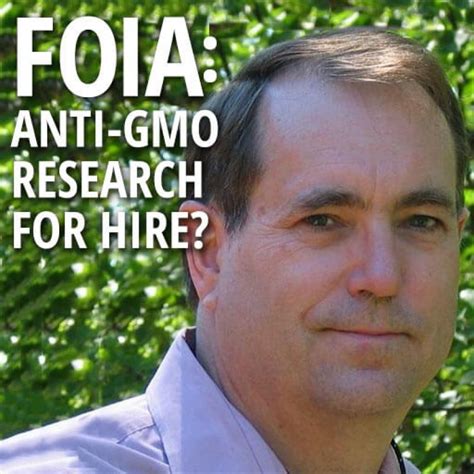A Quote by Cesar Chavez
What, then, is the effect of pesticides? Pesticides have created a legacy of pain, and misery, and death for farm workers and consumers alike. The crop which poses the greatest danger, and the focus of our struggle, is the table grape crop. These pesticides soak the fields. Drift with the wind, pollute the water, and are eaten by unwitting consumers. These poisons are designed to kill, and pose a very real threat to consumers and farm workers alike.
Related Quotes
The farmer and the farm, like "the environment," are looked upon, for example, as means to offset trade deficits. The farm is a place where we can externalize costs. The cost of pesticides to the farmer and the cost of the pesticides to the soil and groundwater are regarded similarly by the public: "a serious problem that something ought to be done about." But the problem is more fundamental than this glib statement would indicate, for soil pollution is an expense of production. So are pesticides and nitrates in our farm wells. So is the loss of farmers from the land.
Through that organization [Community Service Organization], I met Cesar Chavez. We had this common interest about farm workers. We ultimately left CSO to start the National Farm Workers Organization, which became the United Farm Workers. I was very blessed to have learned some of the skills of basic grassroots organizing from Mr. Ross and then be able to put that into practice in both CSO and the United Farm Workers.
If old consumers were assumed to be passive, then new consumers are active. If old consumers were predictable and stayed where you told them, then new consumers are migratory, showing a declining loyalty to networks or media. If old consumers were isolated individuals, then new consumers are more socially connected. If the work of media consumers was once silent and invisible, then new consumers are now noisy and public.
The way to improve productivity is not to bring in experts to talk about inputs - seed, equipment and materials, pesticides or water supply. The way to start is to provide an assured market, a fair price, and a system through which rural producers can market their produce which is reasonably efficient and can transfer to them the maximum share of the consumers' money. If such a structure is erected, the producers will then seek the inputs and materials they need to increase their production and productivity.
Consumers will purchase high quality products even if they are expensive, or in other words, even if there are slightly reasonable discount offers, consumers will not purchase products unless they truly understand and are satisfied with the quality. Also, product appeal must be properly communicated to consumers, but advertisements that are pushed on consumers are gradually losing their effect, and we have to take the approach that encourages consumers to retrieve information at their own will.
Golf has an ambivalent relationship with the environment. On one hand, it's a great preserver of open spaces. Golf doesn't pave the world - it helps to green the world. But the downside is, it uses a lot of fertilizer, pesticides and water. And this is in a world where we know that synthetic fertilizers and pesticides are toxic, and water is more and more scarce. Golf could do a lot more.




































